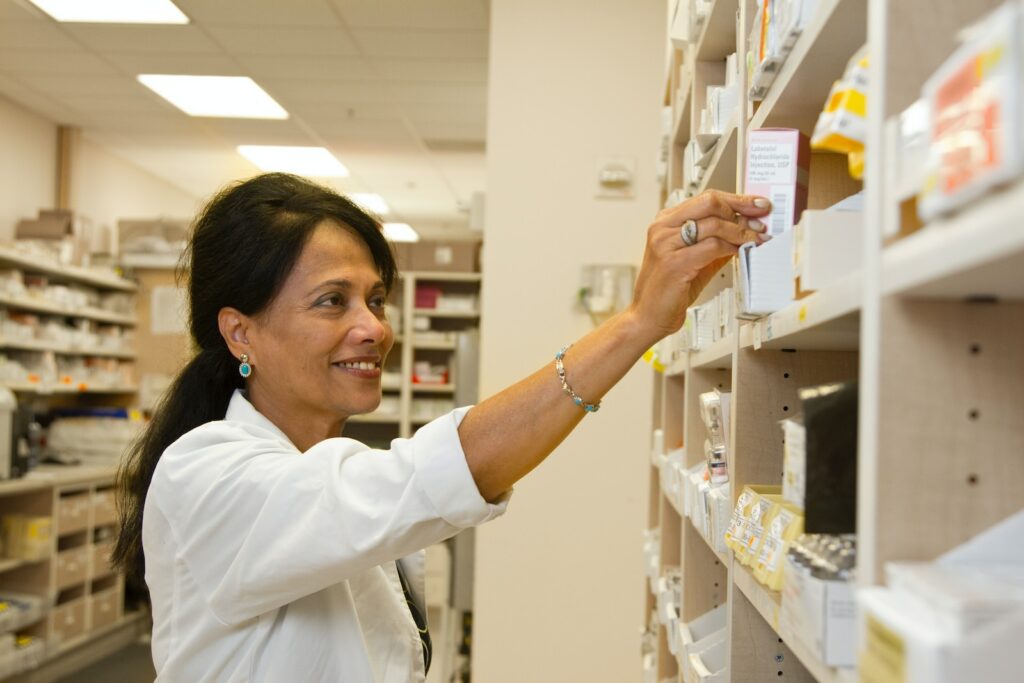Hey, curious minds! Are you wondering how long do you have to go to college to be a pharmacist? If you’ve ever dreamt of donning that white coat, standing confidently behind a pharmacy counter, and playing a crucial role in healthcare, you’re in the right place. Let’s embark on a journey to uncover the ins and outs of becoming a pharmacist—how much time it takes, the steps involved, and what awaits you on this career path. Ready to dive in? Let’s roll!
Contents
- 1 The Pharmacist Path: Unveiling the Timeline
- 2 The Initial Steps: Pre-Pharmacy Education
- 3 Pharmacy School: The Core of the Journey
- 4 The Clinical Experience: Learning in the Trenches
- 5 Getting Licensed: The Culmination of Efforts
- 6 Putting It All Together: The Career Plate
- 7 Conclusion: How Long Do You Have To Go To College To Be A Pharmacist?
- 8 FAQs About Becoming a Pharmacist
The Pharmacist Path: Unveiling the Timeline
Visualize the journey toward becoming a pharmacist as an intricate and winding pathway, much like an adventurous trail that weaves through diverse landscapes. Along this dynamic route, the timeline you’ll traverse can exhibit its own unique contours, influenced by individual circumstances and choices.
While the journey’s duration is variable, the conventional path encompasses a fusion of comprehensive education and immersive practical exposure. This trajectory raises a natural question: what is the duration of commitment required to don that symbolic pharmacist’s cap and embark on a career dedicated to health and wellness?
The Initial Steps: Pre-Pharmacy Education
Fasten your seatbelt as you embark on the opening chapter of your pharmacist’s journey! Before stepping onto the pharmacist’s path, you’ll encounter the crucial phase of pre-pharmacy education. This phase often demands the completion of a bachelor’s degree or, more frequently, a series of designated prerequisite courses.
Spanning approximately two to four years, this phase is akin to assembling the essential ingredients for a culinary masterpiece—you’re meticulously preparing to craft something extraordinary. Just as a chef methodically selects and arranges ingredients to create an exquisite dish, you’re setting the stage for a transformative career in the realm of pharmacy.
Pharmacy School: The Core of the Journey
After triumphing over the pre-pharmacy stage, you’re poised to embrace the heart of the journey—the formidable domain of pharmacy school. Here, you immerse yourself in a profound exploration of medications, pharmacology, and the intricacies of patient care.
This pivotal phase, spanning approximately four years, mirrors an immersive culinary school where you’re not concocting dishes, but rather, delving into the mastery of medicines and their profound impact on the human body. As a culinary artist meticulously hones techniques to craft delectable flavors, you’re devotedly mastering the science behind medications and refining your skills for a career dedicated to healing and health.
The Clinical Experience: Learning in the Trenches
Approaching the culmination of your pharmacy school expedition, a pivotal juncture awaits—the realm of rotations and internships. Here, the classroom’s theoretical knowledge converges with real-world practice, resembling a bustling restaurant kitchen where you’re not whipping up dishes, but navigating the intricate domain of medications, patients, and authentic healthcare scenarios.
These immersive hands-on experiences serve as your training ground, much like a culinary apprentice honing skills under the watchful eyes of seasoned chefs. Engaging in these rotations equips you with invaluable practical insights, transforming you into a skilled practitioner ready to deliver top-notch care while confidently managing pharmaceutical complexities.
Getting Licensed: The Culmination of Efforts
Much like a culinary maestro attains their coveted Michelin star, your journey in the realm of pharmacy reaches its crescendo with the acquisition of your professional license. This pivotal juncture necessitates successfully navigating the realm of examinations, notably the North American Pharmacist Licensure Examination (NAPLEX), which assesses your pharmaceutical expertise, and potentially the Multistate Pharmacy Jurisprudence Examination (MPJE), designed to gauge your grasp of legal and regulatory aspects.
Just as a pinch of the right seasoning can elevate a dish, this licensing process serves as the final garnish on your career’s culmination—a testament to your arduous efforts and unwavering commitment to the art and science of pharmacy.
Putting It All Together: The Career Plate
Having dedicated years to education, immersive practical learning, and triumphing over rigorous examinations, you’re now prepared to take center stage in the world of pharmacy. The career plate you’ve artfully assembled is brimming not only with knowledge and skills but also a profound comprehension of medications’ intricate symphony.
With this well-prepared platter in hand, the choice of your professional destiny lies before you. You’re free to explore a spectrum of avenues, from serving communities through community pharmacies to delving into the complex ecosystem of hospitals or embarking on exciting journeys in research or academia. Just as a gourmet chef crafts diverse dishes with precision, your career’s palette is rich with possibilities, waiting for you to savor and shape its flavors.
Conclusion: How Long Do You Have To Go To College To Be A Pharmacist?
And there you have it—how long do you have to go to college to be a pharmacist? The journey from aspiring pharmacist to seasoned professional. It’s not a sprint; it’s an odyssey that requires dedication, time, and a passion for improving healthcare outcomes. The path might have twists and turns, just like any adventure worth embarking upon, but remember: every step is a building block, every experience a lesson, and every moment a chance to make a difference in patients’ lives.
FAQs About Becoming a Pharmacist
Q: Can I become a pharmacist directly after high school?
Typically, no. Most pharmacists complete pre-pharmacy education before entering pharmacy school.
Q: Is pharmacy school extremely competitive?
Admission can be competitive, but it varies. Strong academic performance and relevant experiences can boost your chances.
Q: Can I become a pharmacist faster by taking accelerated programs?
Some schools offer accelerated programs, but they’re intensive and require a significant commitment.
Q: Do I need a doctorate degree to become a pharmacist?
Q: Yes, the Doctor of Pharmacy (PharmD) degree is the standard requirement for practicing as a pharmacist.
Q: Is pharmacy a rewarding career?
Absolutely! Pharmacists play a vital role in patient care, medication management, and public health, making it a fulfilling and impactful career choice.






